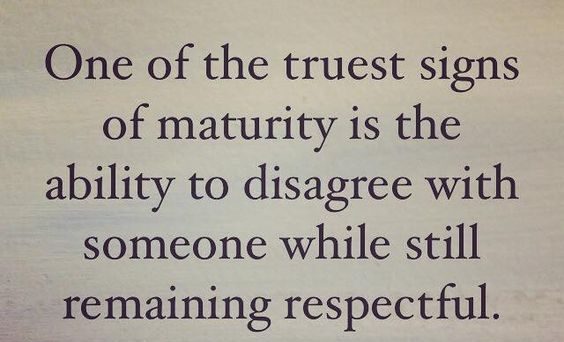
Though differences on various issues are often intense, we can create positive civic change only by discussing and debating them across multiple perspectives.
By Nazarul Islam
Whether it is climate change, criminal justice, immigration, the global pandemic, or government reform, there is often little agreement on how to manage the most pressing issues of our time. Though differences on these issues are often intense, we can create positive civic change only by discussing and debating them across multiple perspectives.
Unfortunately, this kind of broad-ranging dialogue too rarely happens in our high school classrooms. Viewpoint diversity is not alive and well, and students often lack the ability to speak openly and question freely without worrying about repercussions.
Politically correct speech codes have had a chilling effect on open discourse in many high schools, public and private, in New York City, where the two of us live and work.
As educators, we are very concerned about young people’s development and identities being stunted by the suppression of their ability to express ideas outside a narrow orthodoxy. While one of us identifies as liberal and the other as more conservative, we agree that narrowing of speech is harmful to everyone.
It was from this concern that Balaban worked with high school students to create Next Generation Politics (Next Gen Politics) in the spring of 2017, in the wake of a divisive presidential election and in recognition of the need for dialogue across political, socioeconomic, and cultural divides to strengthen a fraying social fabric. Next Gen focuses on high school, a time of peak identity formation when it is of vital importance to be exposed to the broadest possible range of ideas.
 If we don’t want to replicate the polarization playing out among older adults today, putting teens in dialogue with peers whose points of view they might not otherwise share – and enabling them to listen to, argue with, and learn from one another – is of vital importance to creating the increase in civility we deeply need.
If we don’t want to replicate the polarization playing out among older adults today, putting teens in dialogue with peers whose points of view they might not otherwise share – and enabling them to listen to, argue with, and learn from one another – is of vital importance to creating the increase in civility we deeply need.
As such, Next Generation Politics brings diverse high school youth together to grapple with complex civic issues and current events to help them become informed, engaged citizens. Participants focus on perspective-taking, critical thinking, and civil discourse, striving to build a cross-partisan movement of young people committed to building bridges through deliberative dialogue.
The students created a survey on how freedom of expression plays out in schools today, similar to the surveys administered to college students. They collected responses from over 250 teens from a broad range of public and private high schools. Though the sample may be small and imperfect, many of its results are nonetheless sobering.
For example, the survey asked how often a respondent witnessed uncivil treatment of other students based on certain factors, including the student’s faith and whether the student held strong liberal or conservative views. On the upside, barely 4% of respondents reported seeing uncivil treatment based on religion often; 30% reported seeing such treatment sometimes, while the overwhelming majority (66%) reported seeing uncivil treatment on the basis of faith either rarely or never.
By contrast, 21% of respondents say that conservative students face uncivil treatment often, and another 40% say that conservative students sometimes do, meaning that the majority of conservative students (61%) face discriminatory treatment at least some of the time.
These responses are even more striking considering that only 2% of students in the survey comfortably identify as conservative, demonstrating the degree to which conservative thought is missing from the dialogue to which young people are exposed in liberal New York City.
The survey data also reveal that a significant number of student respondents are not comfortable sharing their thoughts in school.
Sixty percent of students surveyed say that they have felt they could not express their opinions on a subject because of how students, teachers, or the administration would respond. This figure is identical to the 60% of college students who report self-censoring on campuses. In-depth analysis of the data shows that significant numbers of students are self-censoring both inside and outside the classroom.
High school students tell us that they crave dissent in dialogue, yet they are intimidated from expressing it themselves for fear of being shunned or canceled. This reality is untenable: almost every student, no matter where they stand on the political spectrum, talks about how refreshing it is NOT to have to fear being attacked for their views.
This repressive climate is toxic for our educational system, which is anchored on the classically liberal idea that people can disagree and still find common ground.
In short, our high schoolers have been dealt a rough hand. We need to help them play it well if we are to address the multiple crises of our time.
With students and teachers returning to school this fall, and as parents support their children in addressing educational deficits, let us not overlook the deficits that come with being exposed to only a narrow range of ideas. We encourage all stakeholders to do as much as they can to nourish productive dissent.
Our democracy and civil society depend on it.
[author title=”Nazarul Islam ” image=”https://sindhcourier.com/wp-content/uploads/2021/05/Nazarul-Islam-2.png”]The Bengal-born writer Nazarul Islam is a senior educationist based in USA. He writes for Sindh Courier and the newspapers of Bangladesh, India and America. He is author of a recently published book ‘Chasing Hope’ – a compilation of his 119 articles.[/author]